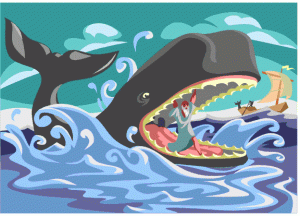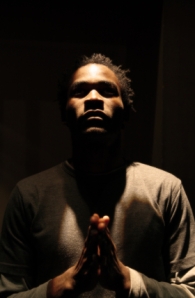There is a lot going these days that can substantially test our faith and force us to confront who we are as Christians. Who we are as followers of God. And what that translates into in our daily actions.
It’s been a year since I began releasing Come Hell or High Water so I figure, by now, everybody did the reading. For those of you who didn’t, a) you can find it here; and b) here’s a quick recap (this is your moment to jump ship if you don’t want to know): Our story begins where The Road to Hell ended—with Lucifer and the Fallen in Hell, Heaven locked in a frozen state of shock (literally), the remnants of the Host trying to maintain some sort of order, and Michael…well, Michael is kinda off the reservation. See, the events of the previous book did something to him, changed him, and Michael has taken it upon himself to ensure order by any means necessary. This is means, to him, hunting down those angels who did not pick sides in the war and executing them: destroying any potential for rebellion.
While practical in theory, this is a particularly brutal way to maintain order in reality and Michael the Archangel clashes with Sariel, with his own army, Raphael, and Emmanuel, ultimately getting exiled to Earth.
His actions aren’t what God had in mind for Heaven.
Now Earth is a whole ‘nother story. Our little blue planet is the proving ground for doing all the things you have no business doing. Michael meets Adam and Eve and his first task is to be the consequence of their disobedience. Everything escalates from there: Raphael and Sariel and the army come to find Michael, Lucifer actually finds Michael and drags him to Hell, Raphael falls in love…with a woman. Yada yada yada…and God floods the Earth.
I’m not gonna give you ALL the details—you should still check it out. It’s actually free.
Anyway, the point of this story is really about the costs of not doing what you were meant to do or not being true to yourself. True to your purpose. Let me give you an example:
Michael is the Peace Maker. His role is to turn chaos into order, to be a unifying force when the individual desires and wants threaten the divine order. God understands that His sons and daughters—His angels—will have wants and desires, will follow pursuits that are antithetical to His intentions. That is part of free will. He leaves Lucifer there as an example to the others—this is where your pride and vanity, your entitlements, your unchecked wants will lead: to destruction. To separation. To Hell. But He also gives us Michael as a check along that road. A guidepost if you will. The problem is Michael misunderstood his role.
As writers, we are given 3 types of conflict to explore the human condition: Man vs Himself, Man vs Others, and Man vs Nature. We learn and grow and discover through introspection, direct conflict with others, and interaction with the environment. Our actual world is no different: the dangers we face as a species come from within, from our peers, or from the environment. In the case of something like climate change, it’s actually all 3.
There’s no such thing as 100% safe. It doesn’t exist. From the moment we are conceived until the day we die, there are forces or circumstances or situations that threaten our existence. There are things we can do to mitigate our risk but alleviating it entirely isn’t realistic and it isn’t something we’d actually want. Have you ever seen the Final Destination movies? They’re a series of films that focus on a group of 20-somethings who escape a catastrophe (the first one is a plane crash) because one of them has a premonition. They spend the rest of the movie trying to avoid death but death keeps picking them off, one by one, in the most gruesome, painful ways possible. Gory details aside, the movies do highlight my point: these people sacrifice their lives trying to stay alive. They hide in cabins and live in fear, walk around shielded by mattresses and hockey masks. Their fear robs them of the potential their lives held. Win or lose, live or die, death wins.
Which brings me to our world, the real one, the one right outside our doors. A week ago, the United States issued a ban on travelers, legal residents, and refugees coming from 7 Middle Eastern countries. This ban separated families, turned people away from their lives and our borders, sent people fleeing a civil war back into certain harm. And it damaged our standing on the world stage. Safety was the rationale given for the ban but we all know, there is no such thing as 100% safe. We’ll never get there and pursuing it with reckless abandon is harmful to us and to others. It isn’t how we grow, it isn’t how we live. It isn’t who we are.
In Come Hell or High Water, Michael is exiled for conducting an inquisition to those angels who didn’t choose to fight for the Father or for Lucifer. They didn’t pick a side. Though he justifies his actions in the name of safety, these actions aren’t what Heaven is about. It isn’t who Michael was meant to be. On Earth, Michael learns the true consequence of living beyond your purpose, of pursuing wants or desires or routes that are outside of what God has designed for you. He gives us the latitude to choose but the consequences remain.
Taken to its logical conclusion, a world bent on pursuing its wants, desires and lusts without a check on that behavior ends with that world flooded, humanity destroyed, Raphael banished from Earth, Michael lost and Lucifer victorious. There is no positive outcome. This is best captured in Lucifer’s telling of the flood in Come Hell or High Water:
…This place was dead, the world and its promise was dead. And Michael and I stood in it. Alone. Silent.
Until the Father screamed.
I have existed since the beginning. I breathed before light was born, spoke before your world was forged, wept long before the sun burned in the heavens. I have seen countless souls created and destroyed, I have watched brothers and sisters tear one another apart, sons and daughters reduced to blood and bone. I’ve seen nations rise and empires fall. I have heard the wails of angels and demons, the cries of man and women. But I have heard nothing like the agony of the Father. Nothing like His rage and frustration and disappointment and the very essence of His futility. He is the Father. He is the beginning and the end. The author of it all. Omnipotent. Omnipresent. God. And yet He could not stop His children from tearing themselves apart.
Even the Father could not stop the inevitable.
He began to cry and His tears came down in torrents, in sheets. Incessant. Flooding the world with His grief. Washing it all away. The bodies of the fallen broke beneath the raindrops, beneath the Father’s tears, leaching into the earth. Trees, thirsty for the water, soon began to drown in the tumult. We watched rivers rise beside us, overflow their banks and rush, unbidden, across dry land. Water poured down mountainsides, dragging rocks and trees in horrible landslides, devastating whatever lay below. We heard the screams of men and women, children and animals, unable to escape the rush of water. We heard them drowning, begging for mercy.
We heard it all.
Michael sat down in the decay, in the rain, let it wash the detritus of battle from his body. He scrubbed his face, cleaned his hands and stabbed his swords in the dirt. I joined him, grinning.
“You win,” Michael said to me. “Happy now?”
I was.


